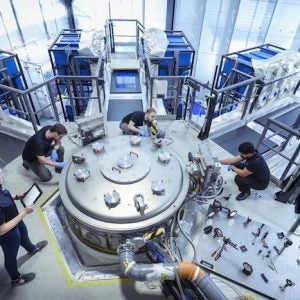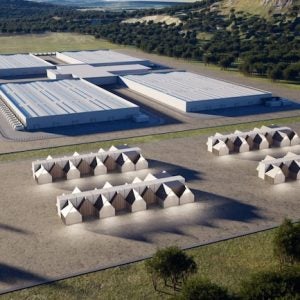Japan Nuclear Fuel Ltd (JNFL), which operates the nuclear fuel reprocessing plant under construction in Japan’s Aomori Prefecture, said in late August that it had found a water leak earlier in the month in the pipes of a storage pool at the plant. JNFL found that the pipes were corroded in 20 places and one of them had a hole. The pipes are located outdoors and used for inspections. JNFL believes rainwater had seeped through gaps in insulation materials wrapped around the pipes, but added that the corrosion had no impact on the pool's operation.
In April, the Nuclear Regulation Authority (NRA) resumed its review of the plant after an eight-month suspension. JNFL had applied for a state safety assessment in 2014, hoping to meet the more stringent standards introduced following the 2011 Fukushima Daiichi disaster. The checks are required the plant can begin operating. However they were halted in October following revelations about the JNFLs lax safety management.
In August 2017, about 800 litres of rainwater was found to have seeped into a building housing key emergency power sources because the ageing equipment had not been checked for about 14 years.
This is just the latest in a long series of delays. The plant was originally scheduled for completion in 1997, but the timeline has been pushed back 24 times for various technical reasons. JNFL’s latest timeline had aimed for the plant to be completed in the first half of fiscal 2018, but it said in December that it will have to push back the schedule by three more years. JNFL expects the plant to be completed in the first half of fiscal 2021. The facility is designed to handle up to 800t of used nuclear fuel a year, extracting about 8t of plutonium for re-use in mox fuel.






